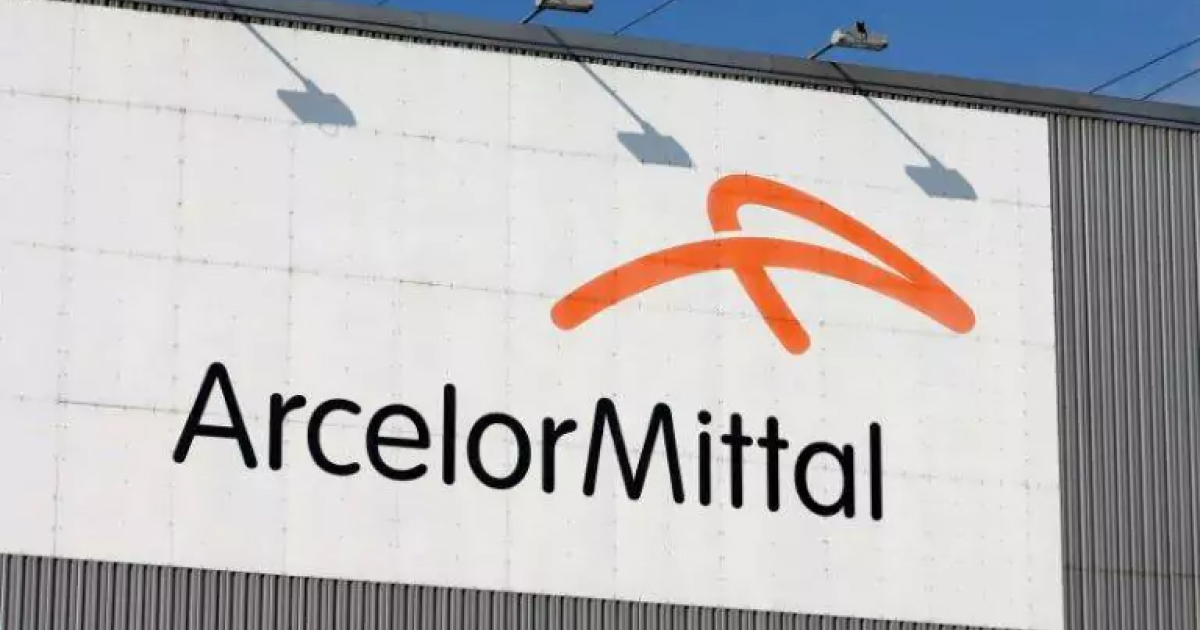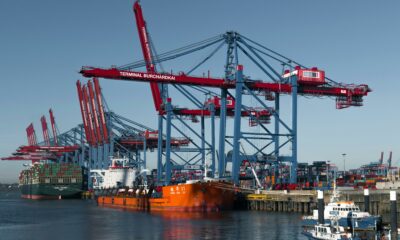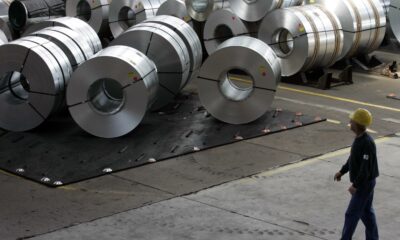Business
South Africa’s Long Steel Crisis: What It Means for Jobs and Industry

Imagine a single plant in Natal or near Jozi shuttering, and everyone in the supply chain feeling the pinch. This is the reality facing ArcelorMittal South Africa’s (AMSA) Long Steel division. Here’s the real story behind the headlines and why Joburg still needs to care.
A Deal That Didn’t Fix the Problem
AMSA secured a R1.68 billion loan from the Industrial Development Corporation (IDC) in March to keep the Long Steel plants going until 30 September 2025. It was supposed to buy time for structural fixes. But by mid-July, company leaders admitted “little progress” had been made to resolve core issues such as energy expense, rail woes and spiralling imports, meaning the clock is still ticking.
Brexit, Blast Furnaces, and Beijing Cheap Imports
This struggling business suffers from a perfect storm: South Africa’s electricity tariffs remain among the highest globally, Transnet’s rail service is crippled, and more than 35 percent of the local steel market is flooded with Chinese imports. Despite attempts to negotiate the removal of unfavourable scrap export taxes and secure import protections, nothing has changed. AMSA warned that operations could be put into care and maintenance as early as August, or at worst, by the end of September.
Who Stands to Lose?
-
3 500 direct jobs at the Newcastle, Vereeniging, and Johannesburg plants would be at risk.
-
At least 100 000 indirect jobs, including steel users in automotive, mining and construction, could fall through if local supply vanishes.
Industry associations like NAACAM warn that auto manufacturers, some sourcing up to 70 000 tonnes per year, would struggle to find certified replacements quickly. Toyota alone could face disruption within months.
Jozi’s Manufacturing at a Tipping Point
For Joburg’s infrastructure plans and industrial suppliers, particularly in Sandton, Midrand or Vereeniging, the fallout is real. The Long Steel plants supply niche products South Africa cannot import or manufacture elsewhere. The loss of local capacity could substantially increase reliance on imports, jeopardise local procurement policies, and undermine local content goals.
What’s the Government Doing?
State leadership is scrambling. Trade minister Parks Tau described the situation as “fire fighting mode” as government negotiations proceed. President Ramaphosa has proposed infrastructure investment totalling more than R940 billion, part of which hinges on reliable domestic steel supply.
But critics argue that systemic issues: shipping logistics, energy policy, and import regulation, haven’t been addressed with urgency or accountability.
Was the Shutdown Inevitable?
AMSA first flagged its Long Steel plans in November 2023. By early 2025, steel production ceased, and by Q1 the full wind-down had begun. Even the IDC loan only delayed closure, not reversed it. Financial performance remains poor: group revenue fell 17% to R17 billion in H1 2025 and headline losses totalled R1.014 billion. No dividends were declared. Ultimately, the company warned that without lasting change, it will start closing parts of operations well before the end of the IDC window.
Why Joburg Has to Watch This
-
Local unemployment adds pressure when 3 500 permanent roles evaporate.
-
Downstream jobs in automotive and construction will shrink fast.
-
Public infrastructure and rail build-out projects rely on consistent, local steel supply.
-
Investment signals are at stake, if industrial policy fails here, international investor confidence suffers.
A Local Story: What Happens in Vereeniging Doesn’t Stay There
In Vereeniging, where many Black families have worked for generations at the mill, this isn’t theoretical. Workers’ representatives have picketed IDC and DTIC offices, urging urgent policy change. For many, it’s not just losing a wage; it’s losing a tradition of employment in their family.
As one local welder said, “My father and grandfather worked here, now we just don’t know what comes next.”
What Could Still Save These Jobs?
-
Reinstate import tariffs and scrap export reforms to level the playing field.
-
Invest in rail and energy infrastructure, to lower operational costs and delay closures.
-
Support value chain localisation, encouraging downstream firms to rely on domestic steel.
-
Explore strategic public-private partnerships, or a rescue buyer for specialised facilities.
Public Pulse: How the Nation Is Reacting
-
Labour unions like NUMSA are mobilising workers, launching protests and calling for immediate government action.
-
Industry bodies such as NAACAM are warning of auto shutdowns without domestic supply.
-
In Parliament, opposition parties have used this crisis to criticise policy inertia. President Ramaphosa has called for intervention but time is short.
The Clock Is Ticking
AMSA’s Long Steel business is more than a financial centre; it is a national asset. If no lasting change comes before the IDC loans run dry in September, the impacts will ripple from Newcastle through to the heart of Jozi’s corporate sectors. Read on Joburg ETC for updates, invited expert commentary and how you can support local industrial policy reform.
Also read: Woolworths Feels the Heat as Country Road Woes Cut Deep into Profits
Follow Joburg ETC on Facebook, Twitter, TikTok and Instagram
For more News in Johannesburg, visit joburgetc.com
Source: Business Tech
Featured Image: GMK Center



























